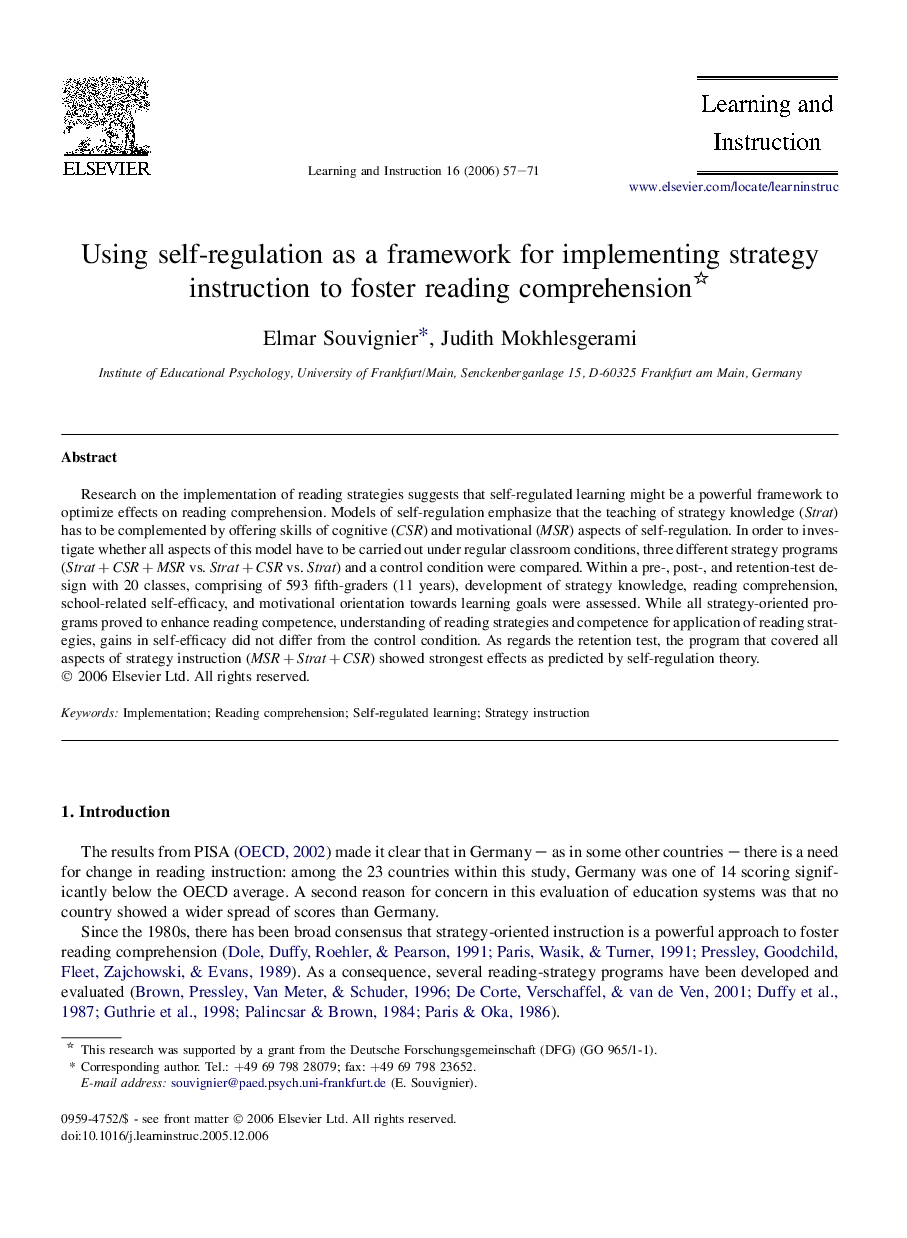| Article ID | Journal | Published Year | Pages | File Type |
|---|---|---|---|---|
| 366039 | Learning and Instruction | 2006 | 15 Pages |
Research on the implementation of reading strategies suggests that self-regulated learning might be a powerful framework to optimize effects on reading comprehension. Models of self-regulation emphasize that the teaching of strategy knowledge (Strat) has to be complemented by offering skills of cognitive (CSR) and motivational (MSR) aspects of self-regulation. In order to investigate whether all aspects of this model have to be carried out under regular classroom conditions, three different strategy programs (Strat + CSR + MSR vs. Strat + CSR vs. Strat) and a control condition were compared. Within a pre-, post-, and retention-test design with 20 classes, comprising of 593 fifth-graders (11 years), development of strategy knowledge, reading comprehension, school-related self-efficacy, and motivational orientation towards learning goals were assessed. While all strategy-oriented programs proved to enhance reading competence, understanding of reading strategies and competence for application of reading strategies, gains in self-efficacy did not differ from the control condition. As regards the retention test, the program that covered all aspects of strategy instruction (MSR + Strat + CSR) showed strongest effects as predicted by self-regulation theory.
